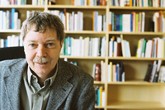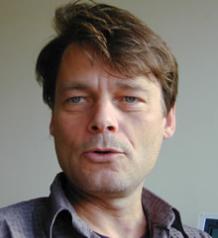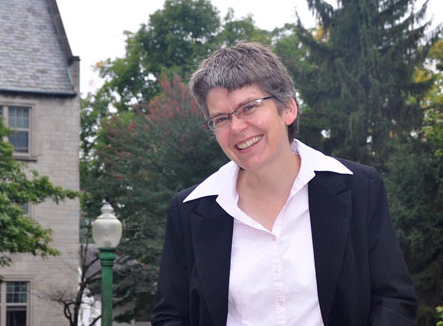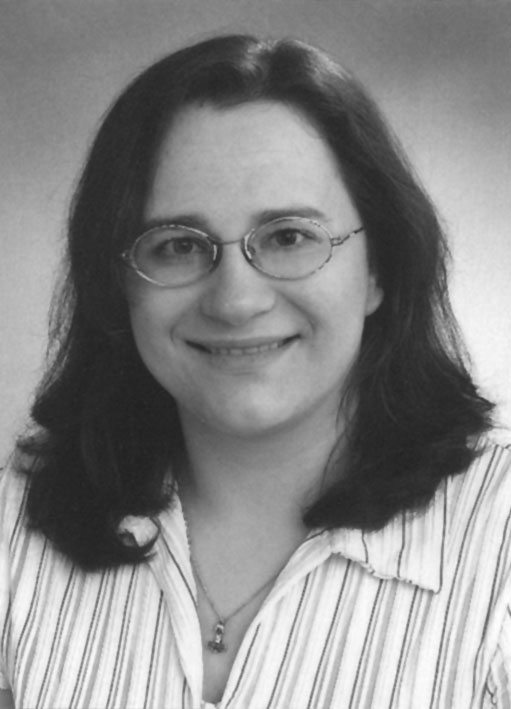Team
Table of Content
- Hans-Jörg Rheinberger (Max-Planck-Institut für Wissenschaftsgeschichte)
- Staffan Müller-Wille (University of Exeter)
- Christina Brandt (Max-Planck-Institut für Wissenschaftsgeschichte)
- Bernd Gausemeier (Max-Planck-Institut für Wissenschaftsgeschichte)
- Stefan Borchers (Max-Planck-Institut für Wissenschaftsgeschichte)
- Heather Peterson (Max-Planck-Institut für Wissenschaftsgeschichte)
- Daniela Kelm (Max-Planck-Institut für Wissenschaftsgeschichte)
Hans-Jörg Rheinberger (Max-Planck-Institut für Wissenschaftsgeschichte)
____________________________________________________________________________________________

- Zoom
- Hans-Jörg Rheinberger
Director
Residence: since January 1, 1997
Profile
The main focus of Hans-Jörg Rheinberger’s research lies in the history and epistemology of experimentation in the life sciences. By bridging the gap between the study of history and contemporary cutting-edge sciences, such as molecular biology, his work represents an example of transdisciplinarity as emerging in the present knowledge society. The Swiss-born scientist studied philosophy and biology in Tübingen and Berlin, Germany. He received his M.A. in philosophy in 1973, his Ph.D. in biology in 1982, and his habilitation in molecular biology in 1987. He was Assistant Professor at the University of Lübeck, Germany, and Associate Professor at the University of Salzburg, Austria. Since 1997, he is a Scientific Member of the Max Planck Society and Director at the Max Planck Institute for the History of Science in Berlin.
Hans Jörg Rheinberger has been a fellow of the Institute for Advanced Study in Berlin and of the Collegium Helveticum in Zürich. He is honorary professor at the Institute for Philosophy and History of Science of the Technical University Berlin, a member of the Berlin-Brandenburg Academy of the Sciences, a member of Leopoldina, the German Academy of Natural Scientists, and a doctor honoris causa at the Federal Polytechnical Institute in Zürich.
Selected Publications
Rheinberger, Hans-Jörg. Historische Epistemologie zur Einführung. Hamburg: Junius, 2007.
Müller-Wille, Staffan; Rheinberger, Hans-Jörg (Editor/s). Heredity produced: at the crossroads of biology, politics, and culture, 1500-1870. Cambridge, Mass.: MIT Press, 2007.
Rheinberger, Hans-Jörg. Iterationen. Berlin: Merve, 2005.
Rheinberger, Hans-Jörg. Epistemologie des Konkreten: Studien zur Geschichte der modernen Biologie. Frankfurt am Main: Suhrkamp, 2006.
Rheinberger, Hans-Jörg. Toward a history of epistemic things: synthesizing proteins in the test tube. Stanford, Calif.: Stanford Univ. Press, 1997.
Staffan Müller-Wille (University of Exeter)
____________________________________________________________________________________________

- Zoom
- Staffan Müller-Wille
Research Scholar
Residence: 01.12.00 - 30.09.04
Visiting Scholar
Residence: 01.08.09 - 31.08.09
Rewriting the System of Nature: Linnaeus's Use of Writing Technologies
As a consequence of overseas discoveries, early modern scientists were faced with what has been termed the “first bio-information crisis”. The sheer amount of exotic, hitherto unknown species that reached the shores of Europe forced scientists to reconsider the ways in which they wrote and thought about the natural world. Paper technologies had to be developed that allowed to process large amounts of new information, and these technologies in turn allowed early modern naturalists and physicians to think in new ways about the “order of nature.”
The aim of this 3-year research project is to explore these processes through a detailed reconstruction of the ways in which the naturalist Carl Linnaeus (1707–1778) assembled, filed, and cross-referenced information about plants and their medicinal virtues. Linnaeus has been described as a “pioneer in information retrieval.” In particular, Linnaeus was one of the first to suggest that “natural” plant genera and families share similar pharmaceutical virtues, and that herbal drugs might be sought out on that basis. His manuscripts, held at the Linnean Society (London), provide an excellent opportunity to understand how information processing practices determine such ideas.
While the project focuses on the corpus of manuscripts and publications of a single scientist, Carl Linnaeus (1707–1778), it will serve as a pilot project to develop both a terminology and a methodology that is attentive to the materiality of writing, and will have ramifications for how the history of science and medicine is done in general.
Christina Brandt (Max-Planck-Institut für Wissenschaftsgeschichte)
____________________________________________________________________________________________

- Zoom
- Christina Brandt
Research Scholar
Residence: June 1, 2003 - January 31, 2011
Reproduction in Biology. Configurations between Science and Culture, 1900-2000
This project deals with research on “reproduction” in late nineteenth and twentieth century life sciences. “Reproduction” has a variety of meanings: it relates to different ways of propagation and multiplication and it also refers to ways of making things similar or identical. In the latter sense “reproduction” means “replication” and it has a bearing on molecular copying and cloning techniques. Today, biomedical research on reproduction and related areas like stem cell research are rapidly developing fields with controversial impacts on society and culture. In this project, I wish to broaden the perspective of the history of reproduction in biology by taking into account more than a specific disciplinary research field like reproductive medicine or reproduction biology. Rather, the study addresses the emergence and changing techniques of reproduction and their uses in different fields of the life sciences throughout the twentieth century.
The fundamental role which reproduction played, both as a subject under study as well as an experimental technique, in twentieth century life sciences is explored through a number of case studies, dealing with reproduction research on the level of molecules, cells and organisms. The focus is on (1) the history of cell biology (the emergence and reproduction of cell lines), (2) molecular biology and genetic engineering (the notion of replication and molecular copying techniques), and (3) developmental biology and embryo research. A particular line of research concentrates on the history of cloning and its cultural dimensions throughout the twentieth century. These studies represent an extension of the earlier research on the history of cloning which had a special focus on developments in biomedical research in Germany since 1950.
Selected Publication
Brandt, Christina . "Genetic code, text, and scripture : metaphors and narration in German molecular biology. " Science in Context 18 (4 2005)
Brandt, Christina. Metapher und Experiment : von der Virusforschung zum genetischen Code. Göttingen: Wallstein, 2004.
Brandt, Christina . "A, T, C, G. Das 'Buch der Natur'." In: 10 + 5 = Gott : die Macht der Zeichen ; [Begleitbuch zur Ausstellung '10 + 5 = Gott. Die Macht der Zeichen', Berlin, Jüdisches Museum, 25. Februar bis 27. Juni 2004] , eds.: Tyradellis, Daniel; Friedlander, Michal S.. Köln: DuMont, 2004.
Brandt, Christina. "How does novelty emerge through scientific investigation? Resource Review of: Holmes, Frederic Lawrence: Investigative pathways: patterns and stages in the careers of experimental scientists. New Haven: Yale Univ. Press 2004. " Developmental Cell 7 (6 2004)
Brandt, Christina. "Die kodifizierte Ordnung der Dinge. Zum Gebrauch von Metaphern in den Wissenschaften." In: Wissenschaft und Welterzählung: Die narrative Ordnung der Dinge : Fakt & Fiktion 7.0, eds.: Michel, Matthias. Zürich : Chronos-Verlag, 2003.
Bernd Gausemeier (Max-Planck-Institut für Wissenschaftsgeschichte)
____________________________________________________________________________________________
- Zoom
- Bernd Gausemeier
Research Scholar
Residence: October 1, 2004 - December 31, 2010
Genealogy and Human Heredity in Germany, ca. 1850-1945
All knowledge about human heredity is based on genealogy, but only in the nineteenth century did genealogy become the key method for the study of heredity. Animal breeders, plant breeders, physicians and psychiatrists all used genealogical systems to record or to reconstruct information about hereditary transmission. Genealogy, thus, was the material basis for constructing knowledge about heredity in various scientific fields. Yet, it is not only relevant as a scientific method. The use of genealogy also reflects prevailing ideas about familial and social order. Looking at genealogical practices, therefore, can tell us a lot about the political and social changes that were associated with the emergence of a science of heredity.
One aim of my project is to show how nineteenth century concepts of human heredity were expressed through and shaped by genealogical methods – or, in a broader sense, methods of data recording. Psychiatry is a particularly interesting field in this respect, since psychiatric asylums were the first institutions to record alleged hereditary phenomena regularly. While this institutional framework favored a statistical approach rather than the study of individual genealogies, pedigrees were frequently used to represent various ideas about heredity: about the familial genesis of talent and “genius”, the predisposition for delinquency or the transmission of physical abnormalities. It was not until the end of the nineteenth century, however, that genealogy was defined as an auxiliary science of biology and medicine.
The central part of my project is concerned with the redefinition of genealogy in Germany around 1900. In his influential Outlines of Scientific Genealogy (1898), historian Ottokar Lorenz defined genealogy as the bridge between historical and scientific research. Lorenz both encouraged historians to direct more attention to phenomena of heredity and called medical researchers to devote more attention to genealogical methods. In an intellectual climate characterized by the rise of biologism and eugenics, his call did not go unheard. Genealogical associations, then mainly occupied with the mere collection of family records, began to join forces with psychiatrists and other medical scientists interested in the study of human heredity.
In the years before and after World War I, plans for genealogical collections to maintain family histories and medical data flourished. Genealogical surveys were regarded as the starting point both for a scientific study of human heredity and as a means of eugenic control. Furthermore, sociologists and psychologists regarded them as a basis for understanding the formation of social groups or for examining the specific hereditary ability of individuals. And since pedigree collections could only be compiled with the help of hobby genealogists, eugenicists hoped that such enterprises might help to popularize eugenic ideas. In short, genealogy was at the center of diverse scientific and political interests and generated new scientific and political ideas. The interest in genealogy culminated under the Nazi regime, when numerous eugenic databases were created and the right to live became virtually dependent on one’s family chart. The practices of genealogy, thus, represent an important chapter in the history of biopolitics in the twentieth century.
Selected Publications
Gaudillière, Jean-Paul; Gausemeier, Bernd. "Molding national research sytems: the introduction of penicillin to Germany and France. " Osiris 20 (2005)
Stefan Borchers (Max-Planck-Institut für Wissenschaftsgeschichte)
____________________________________________________________________________________________
Postdoctoral Research Fellow
Residence: March 1, 2009 - February 28, 2011
Propagation of the Soul - Inheritance of the Sin
Stefan Borchers explores the influence of religious confession in shaping the theories of generation and inheritance in late seventeenth- and eighteenth-century Lutheran Germany.
Within the historiography of biology the importance of theological thought is widely underestimated; in truth, confessional thinking should be considered as a central reference point for early modern thought on generation and heredity. With regard to the question of how the embryo is formed, the emerging “life sciences” were accompanied by a parallel discourse on the soul’s origin. Because this discourse related the origination of the body and soul to one another, physiological and metaphysical investigations intertwined and sometimes limited one another.
This was especially so because in the course of the seventeenth century, the problem of the soul’s origin had become a subject of controversy among Lutheran, Catholic and Reformed theologians. The Lutheran doctrine of traducianism amalgamated the physiology and metaphysics of generation, teaching that parents engender both the body and the soul of their offspring. This doctrine made it problematic, if not impossible, for Lutheran physicians and philosophers at the turn of the century to adopt the emerging theory of embryonic preformation as enthusiastically as their Catholic and Reformed contemporaries.
Thus, the way of dealing with preformation can be seen as a touchstone for the respective anthropological model guiding philosophers and physicians of this epoch. The Lutheran model of a continuous propagation of human bodies and souls since the time of Adam and Eve formed part of a non-dualistic anthropology which remained influential at least until the end of the eighteenth century.
Heather Peterson (Max-Planck-Institut für Wissenschaftsgeschichte)
____________________________________________________________________________________________
- Zoom
- Heather Petersen
Postdoctoral Research Fellow
Residence: January 15, 2010 - January 14, 2011
Essential Differences: Body and Place in the Early Modern Atlantic
Heather’s current project, entitled “Essential Differences: Body and Place in the Early Modern Atlantic” is part of the Cultural History of Heredity project. This work starts with an investigation of the ideas Spaniards brought with them across the Atlantic about the generation of man, and the relationship between body and environment. It then moves on to look at the ways Spaniards imagined the environmental influences of New Spain throughout the first hundred years of colonization. Finally, it concludes with a moment in Mexico City at the turn of the 17th century when Juan de Cárdenas, Diego de Cisneros, and Enrico Martínez posited that creoles inherited an "essential" choleric nature along with other physical features, such as beards and a propensity to go bald. It argues that this construction reflects the same "knowledge regime" of heredity that informed the 17th-century casta paintings, and that this understanding of heredity was not entirely unrelated to the emphasis on limpieza de sangre, or purity of blood, which governed the caste system throughout the Spanish Americas. Just as creoles inherited the Old Christian blood of their ancestors, they inherited the “essential” Spanish nature conferred by the stars, soil, and water of their forefathers. According to these authors it was possible to be a product of two places. Just as man was a microcosm of the machina mundi, creole bodies were a microcosm of two worlds.
Daniela Kelm (Max-Planck-Institut für Wissenschaftsgeschichte)
____________________________________________________________________________________________

- Zoom
- Daniela Kelm
Student Research Assistant
Since February 2008
Born 1980, after finishing her apprenticeship as a cartographer and three years of work for the Federal Agency for Cartography and Geodesy, Daniela Kelm started studying Prehistoric Archaeology at the Free University in Berlin in 2006. She holds a bachelor in archaeology and is now in her master studies. The field of research she prefers is the evolution of mankind, neantherthals, early homo sapiens, the first settlers in europe and dietary reconstructions with light isotope analysis (in general palaeolithic to neolithic times).
She has worked for conferences like the CAA (Computer Applications in Archaeology), the Scythian Congress, and was part of the organization team of "archaeoworks" (a conference about career prospects in archaeology completely organized by students). Additionally she is a scholar of the DAAD (German Academic Exchange Service) to study a semester abroad in Århus/Denmark.
 Heredity
Heredity